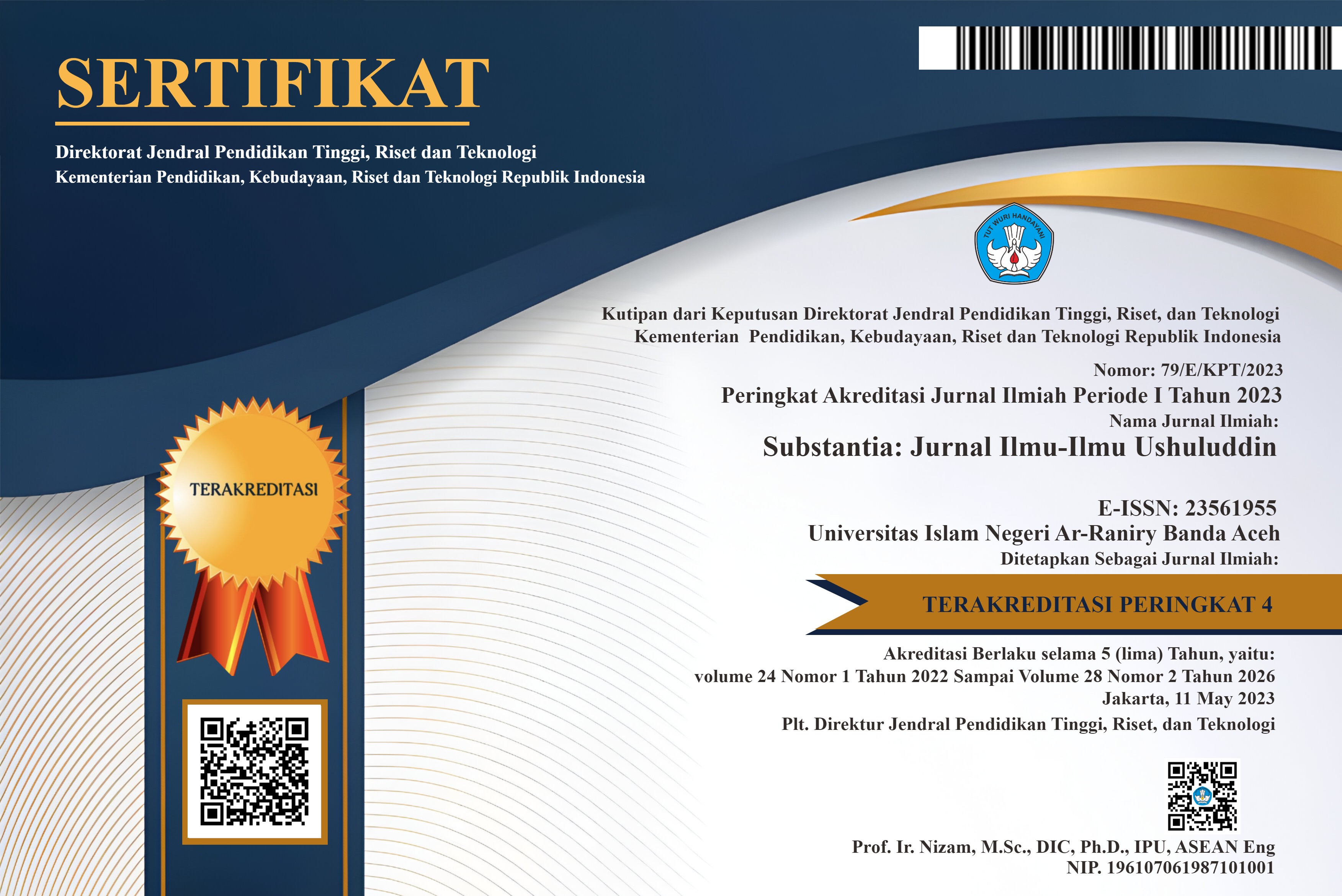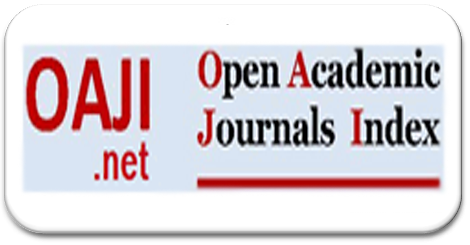Konsep Naturalisasi Ilmu Dalam Persepektif Abdelhamed Sabra
Abstract
Keywords
Full Text:
PDFReferences
‘Abd Al-Rahman Badawi pada Adab Al-Falasifah yang merupakan sebuah ringkasan oleh Al-Anshari dari buku Hunain ibnIshaq, Nawadir Al-Falasifah. Kuwait: alMunazhzhamah Al-‘Arabiyyah li Al-Tarbiyahwa Al-Tsaqafahwa Al-‘Ulum,1985.
Dimitri Gutas, Avicenna and the Aristotelian Tradition. Leiden: E. J. Brill, 1988.
Everett Rowston, A Muslim Philosopher on the Soul and Its Fate: Al-‘Amiri’s Kitab al- ‘Amad ‘al-Abad. New Haven, Conn America Oriental Society, 1988.
Francis Henry Sanback, “Hellenistic Thought†dalam Paul Edward (ed.), The Encylopedia of Philosophy, jil. 3. New York: Macmillan Publishing Co. Inc& The Free Press,1977.
Ihsan ‘Abbas, Malamih Al-Yunaniyyah fi Al-Adab Al-‘Arabi. Beirut: Al-Mu’assasah Al‘Arabiyyah li Al-Dirasat wa Al-Nasyr,1977.
Isma’il R. Al-Faruqi & Lois Lamya Al-Faruqi, Atlas Budaya Islam, terj. Ilyas Hasan, cet.III. Bandung: Mizan, 2001.
Isma’il Raji al Faruqi, Islamisasi Pengetahuan. Bandung: Pustaka, 1982.
L. E. Goodman, Avicenna. London: Routledge, 1992.
Majid Fakhry, A History of Islamic Philosophy, 1997
Mehdi Golshani, “Science and The Sacred: Sacred Science vs. Secular Scienceâ€, yang disampaikan pada konferensi internasional tentang Agama dan Sains pada masa Pos-Kolonial, di Yogyakarta, 2 januari 2003.
Mulyadhi Kartanegara, Menyibak Tirai Kejahilan: Pengantar Epistemologi Islam. Bandung: Mizan, 2003.
Philip Calyton, “Perceiving God in the Lawfulness of Natureâ€, yang disampaikan pada konferensi internasional tentang Agama dan Sains di Yogyakarta, 3 januari 2003,
Simon Van den Burgh ke Averroes ‘Tahafut Al-Tahafud. London: Luzac & Co., 1945. Tobay Huff, The Rise of Early Modern Science, Zainuddin, Paradigma Pendidikan Terpadu Menyiapkan Generasi Ulul Albab. Malang:
UIN Press, 2008.
www.satu.islam.org, Abdelhamid I Sabra Ilmuwan Muslim Asal Amerika Abad 20, Tulisan tanggal 20 Februari 2014.
DOI: http://dx.doi.org/10.22373/substantia.v18i2.2999
Refbacks
- There are currently no refbacks.
Copyright (c) 2016 Ernita Dewi

This work is licensed under a Creative Commons Attribution-NonCommercial 4.0 International License.
SUBSTANTIA: JURNAL ILMU-ILMU USHULUDDIN
DITERBIKAN OLEH:
FAKULTAS USHULUDDIN DAN FILSAFAT
UNIVERSITAS ISLAM NEGERI (UIN) AR-RANIRY BANDA ACEH, ACEH INDONESIA
ALAMAT REDAKSI:
Gedung Fakultas Ushuluddin Lantai II, Fakultas Ushuluddin, UIN Ar-Raniry, Jln. Lingkar Kampus, Kopelma Darussalam Banda Aceh, Aceh 23111.Telp. (0651)7551295. eMail: substantia.adm@gmail.com

This work is licensed under a Creative Commons Attribution-NonCommercial 4.0 International License.


.png)




















